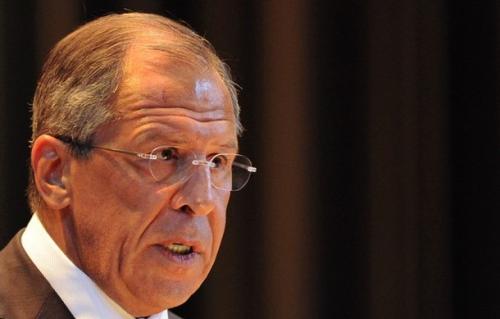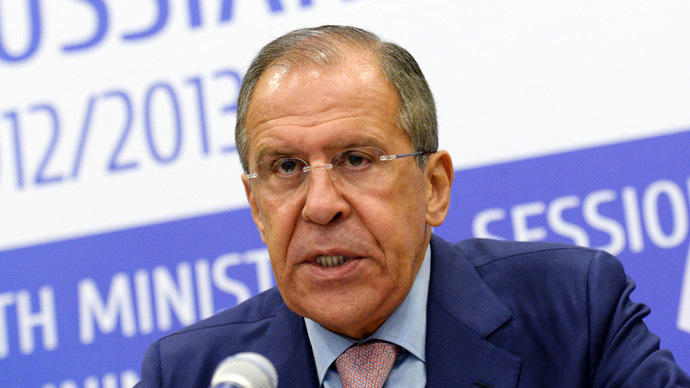Russian Foreign Minister Sergey Lavrov stated Thursday that he handed his American counterpart John Kerry key evidences confirming the involvement of the Syrian opposition in the chemical attack against Ghota near Damascus
 Russian Foreign Minister Sergey Lavrov stated Thursday that he handed his American counterpart John Kerry key evidences confirming the involvement of the Syrian opposition in the chemical attack against Ghota near Damascus in August 21.
Russian Foreign Minister Sergey Lavrov stated Thursday that he handed his American counterpart John Kerry key evidences confirming the involvement of the Syrian opposition in the chemical attack against Ghota near Damascus in August 21.
During an interview with the U.S. Washington Post daily, Lavrov said " we believe there is very good evidence to substantiate this (the opposition's involvement)."
"I just presented a compilation of evidence to John Kerry when we met a couple of hours ago. This evidence is not something revolutionary. It’s available on the Internet," he indicated.
Lavrov pointed out that the evidences include the testimonies of reporters who had visited the scene and spoke to the militants.
"They (the Russian evidences) are reports by journalists who visited the sites and talked to the combatants, who said they were given some unusual rockets and ammunition by some foreign country and they didn’t know how to use them," the Russian minister stated, adding there are also testimonies of nuns living in the monastery nearby who visited the site.
"You can read the assessments by the chemical weapons experts who say that the images shown do not correspond to a real situation if chemical weapons were used," Lavrov told the U.S. reporter.
"We also know about the open letter sent to President Obama by former operatives of the CIA saying the assertion that the [Syrian] government used chemical weapons was fake," he added.
Lavrov also stressed that Moscow can confirm the sarin gas used in the Ghota was made in local workshops, adding that the chemical samples taken from the site of attack in Khan al-Asal of Aleppo countryside match the samples taken from Ghota.
The Russian official recalled that his country's experts who conducted an investigation into Khan al-Asal concluded that the used sarin hadn't been experimentally produced.
"There are also indications that the toxic substance in Ghota was of the same type, but more concentrated," he stated.
Moreover, Lavrov stressed that Russia and the United States agreed that the preparation for an international resolution in the Security Council on the Syrian chemical weapons should be carried out on the basis of the Geneva accord.
Lavrov stated that foreign mercenaries fighting in Syria represent a real threat to the entire international community: "The jihadists come from many European countries, Russia included, and some even from the United States; hundreds of them — if you take Europe, Russia and the U.S. — are fighting in the ranks of extremist groups," he noted.
"I am sure they are gaining the experience which they will try to use after the Syrian crisis is over elsewhere, first and foremost in their home countries. This is our common threat," he stressed.
"Either we agree that any terrorism is unacceptable, or we will be playing a double-standard game."
On the Islamic Republic new international approach, Lavrov said that Sheikh Rouhani's stances are encouraging.
"They confirmed the need to continue negotiations, they expressed their desire and willingness to be more transparent and to be more concentrated on reaching a result," he said.
The Russian diplomat called for lifting sanctions on Iran, stating that reciprocity must be on table:
"The sanctions were imposed because of the lack of results in resolving the Iranian nuclear issue. If progress is achieved, this must be followed and reciprocated by softening and eventually lifting the sanctions."
The Foreign Minister concluded his interview by stating that Russia is "concerned with keeping Syria in one piece, territorially integral, sovereign, independent and secular, where the rights of all groups, ethnic and others, are fully respected."
"The more we try to find common approaches to get there, the more efficient our cooperation will be," Lavrov ended up as saying.
